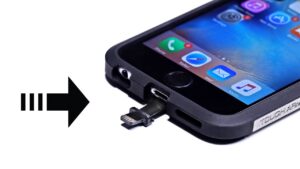Are you wondering about the intricacies of a battery management system reset? Look no further! In this blog article, we will delve into the concept of what a battery management system reset entails and why it is essential for maintaining the optimal performance of your battery. Whether you’re a novice or a seasoned enthusiast, understanding the importance of a battery management system reset is key to ensuring longevity and efficiency. So, let’s dive right in and explore this topic in detail.
What Is Battery Management System Reset
A battery management system (BMS) is a crucial component in electric vehicles (EVs) and hybrid vehicles. It monitors and regulates various aspects of the battery pack, including cell voltage, temperature, and state of charge. Over time, the BMS may encounter issues or become uncalibrated, leading to inaccurate readings and potentially affecting the performance and lifespan of the battery.
A battery management system reset is a process that restores the BMS to its default settings, resolving any existing issues and ensuring optimal battery operation. This reset is typically performed by professionals or through specialized software tools.
Why Is Battery Management System Reset Important?
To understand the significance of a battery management system reset, let’s explore the key reasons why it is important:
1. Restoring Accuracy
Over time, the BMS may accumulate errors or calibration drift, resulting in inaccurate readings of cell voltages, temperatures, and state of charge. These inaccuracies can mislead the vehicle’s control systems, leading to suboptimal performance and potentially reducing the battery’s lifespan. By performing a reset, the BMS can recalibrate and restore accuracy to its measurements, ensuring optimal battery operation.
2. Improving Performance
Inaccurate measurements and misaligned calibration can impact the performance of an electric or hybrid vehicle. A battery management system reset helps to eliminate any software-related issues or glitches, allowing the BMS to effectively regulate the battery’s charging and discharging processes. This optimization can lead to improved overall vehicle performance, increased range, and enhanced efficiency.
3. Preventing Overcharging and Overdischarging
The BMS plays a crucial role in preventing overcharging and overdischarging, which can be detrimental to the battery’s health and safety. Overcharging can cause excessive heat generation and damage the battery cells, while overdischarging can lead to cell imbalance and reduced capacity. A battery management system reset ensures that the BMS accurately monitors and limits the charge and discharge levels, protecting the battery from these harmful conditions.
4. Extending Battery Lifespan
A well-calibrated BMS is essential for maximizing the lifespan of a battery pack. By regularly performing a battery management system reset, the BMS can maintain accurate readings and effectively balance the cell voltages. This balance is vital for preventing some cells from aging faster than others, which can lead to capacity loss and reduced overall battery lifespan. With an optimized BMS, the battery can operate within its designed parameters, extending its lifespan.
How Is Battery Management System Reset Performed?
A battery management system reset can be performed through various methods, depending on the vehicle and the BMS setup. Here are a few common approaches:
1. Professional Service
Car manufacturers or authorized service centers often have specialized tools and software to perform a battery management system reset. These professionals can diagnose any BMS issues, recalibrate the system, and ensure accurate readings and optimal performance. It is recommended to consult the vehicle manual or contact the manufacturer for guidance on the specific reset procedure for your vehicle.
2. Software Tools
Some battery management system software tools are available to perform resets and recalibrations. These tools connect to the BMS via diagnostic ports or wireless interfaces, allowing users to access and modify the BMS parameters. However, it is important to ensure that these tools are compatible with the vehicle’s BMS and follow the manufacturer’s instructions to avoid any unintended consequences.
3. Battery Disconnect Method
In some cases, disconnecting the battery from the vehicle’s electrical system for a period of time can trigger a system reset. However, this method should be approached with caution, as it may lead to the loss of certain vehicle settings or require additional steps to reprogram the system after the reset.
When Should You Reset the Battery Management System?
Performing a battery management system reset should generally be left to professionals or individuals with proper knowledge and tools. However, there are a few situations where a reset may be beneficial:
1. BMS-related Issues
If you experience persistent issues with your battery, such as sudden capacity loss, abnormal heating, or inconsistent readings, a BMS reset may help resolve the problem. It is important to consult the vehicle manual and, if necessary, reach out to the manufacturer or a qualified professional for guidance.
2. Battery Replacement
When replacing the battery pack in an electric or hybrid vehicle, it is advisable to perform a BMS reset. This ensures that the new battery is properly calibrated and integrated with the vehicle’s electrical system, optimizing its performance and extending its lifespan.
3. Routine Maintenance
As part of routine maintenance, some manufacturers recommend performing a battery management system reset to ensure accurate readings and optimal battery performance. Check the vehicle manual or consult an authorized service center for guidance on the recommended maintenance schedule and procedures.
A battery management system reset is a crucial maintenance procedure for electric and hybrid vehicles. By restoring accuracy, improving performance, preventing overcharging and overdischarging, and extending the battery lifespan, a reset ensures optimal battery operation. While it is recommended to leave the reset to professionals or individuals with proper knowledge and tools, understanding the importance and potential situations where a reset may be beneficial can help vehicle owners make informed decisions regarding their battery’s health and longevity.
Frequently Asked Questions
What is a Battery Management System Reset?
A Battery Management System Reset refers to the process of restoring the battery management system of a device to its original factory settings. It involves clearing any stored data, recalibrating the system, and resolving any software or firmware issues that may be affecting the battery performance.
Why would I need to perform a Battery Management System Reset?
You may need to perform a Battery Management System Reset if you are experiencing battery-related issues with your device. This can include problems such as rapid battery drain, inaccurate battery level readings, or difficulty in charging the device. Resetting the battery management system can help resolve these issues and improve overall battery performance.
How do I perform a Battery Management System Reset?
The process of performing a Battery Management System Reset may vary depending on the device. In most cases, you can access the reset option through the device settings or by using a combination of buttons on the device. It is recommended to refer to the device’s user manual or contact the manufacturer for specific instructions on performing a Battery Management System Reset.
Will performing a Battery Management System Reset delete my data?
No, performing a Battery Management System Reset typically does not delete your data. It mainly focuses on resetting the battery management system settings and resolving any related issues. However, it is always recommended to back up your important data before performing any system resets, as there is a slight possibility of data loss.
How often should I perform a Battery Management System Reset?
There is no specific timeframe for performing a Battery Management System Reset. It is generally recommended to perform a reset only when necessary, such as when you are experiencing battery-related issues. Regular maintenance of the device, such as optimizing app usage, minimizing background processes, and keeping the device updated, can help prevent the need for frequent resets.
Can a Battery Management System Reset fix all battery-related issues?
A Battery Management System Reset can resolve many battery-related issues, especially those caused by software or firmware glitches. However, if the issue is hardware-related, such as a faulty battery or charging port, a reset may not completely solve the problem. In such cases, it is advisable to seek professional assistance or contact the device manufacturer for further troubleshooting and potential repairs.
Final Thoughts
In conclusion, a Battery Management System Reset is a procedure used to recalibrate and reconfigure the battery management system of a device. It helps in maintaining the accuracy and health of the battery by resetting its parameters. By performing a reset, you can address issues such as inaccurate battery percentage readings or sudden power drain. This process can be carried out by following specific steps provided by the device manufacturer or seeking professional assistance when needed. So, if you encounter any battery-related problems, consider a Battery Management System Reset as a potential solution.



